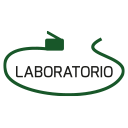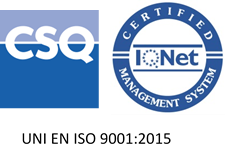C# è uno dei linguaggi che fa parte della suite di sviluppo Visual Studio 2012. Le caratteristiche di linguaggio di programmazione orientato agli oggetti: ereditarietà, polimorfismo e overloading non sono più prerogative solo di Java e C++. Il corso introduce con gradualità i concetti fondamentali della programmazione C# (strutture di controllo, procedure, array, programmazione orientata agli oggetti, interfacce utente grafiche), offrendo al tempo stesso una panoramica ampia e articolata del linguaggio, dell'ambiente integrato di sviluppo Visual Studio 2012 e delle caratteristiche di .NET Framework 4.5. Il corso valido per la preparazione all'esame di certificazione 70-483 e il conseguimento della certificazione MCSD.
Durata 5 giorni
Programma
- Review of C# Syntax:
- overview of Writing Applications using C#
- Datatypes, Operators, and Expressions
- C# Programming Language Constructs.
- Creating Methods, Handling Exceptions, and Monitoring Applications:
- creating and Invoking Methods
- creating Overloaded Methods and Using Optional and Output Parameters
- Handling Exceptions
- Monitoring Applications.
- Developing the Code for a Graphical Application:
- implementing Structs and Enums
- Organizing Data into Collections
- Handling Events.
- Creating Classes and Implementing Type-safe Collections:
- creating Classes
- defining and Implementing Interfaces
- implementing Type-safe Collections.
- Creating a Class Hierarchy by Using Inheritance:
- creating Class Hierarchies
- extending .NET Framework Classes
- creating Generic Types.
- Reading and Writing Local Data:
- reading and Writing Files
- Serializing and Deserializing Data
- performing I/O Using Streams.
- Accessing a Database:
- creating and Using Entity Data Models
- querying Data by Using LINQ
- updating Data by Using LINQ.
- Accessing Remote Data:
- accessing Data Across the Web
- accessing Data in the Cloud.
- Designing the User Interface for a Graphical Application:
- using XAML to Design a User Interface
- binding Controls to Data
- styling a User Interface.
- Improving Application Performance and Responsiveness:
- Implementing Multitasking by using Tasks and Lambda Expressions
- performing Operations Asynchronously
- synchronizing Concurrent Access to Data.
- Integrating with Unmanaged Code:
- creating and Using Dynamic Objects
- managing the Lifetime of Objects and Controlling Unmanaged Resources.
- Creating Reusable Types and Assemblies:
- examining Object Metadata
- creating and Using Custom Attributes
- generating Managed Code
- versioning, Signing and Deploying Assemblies.
- Encrypting and Decrypting Data:
- implementing Symmetric Encryption
- implementing Asymmetric Encryption.






